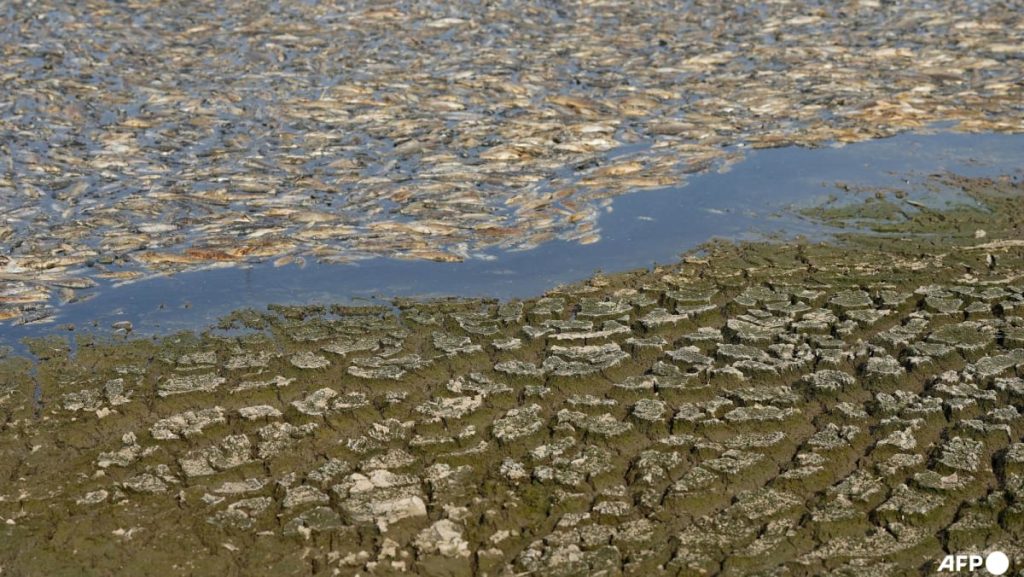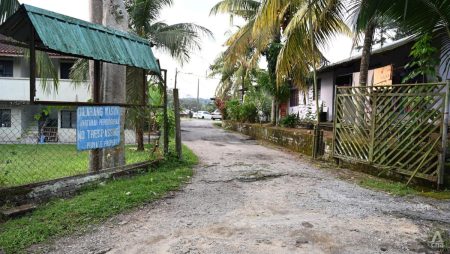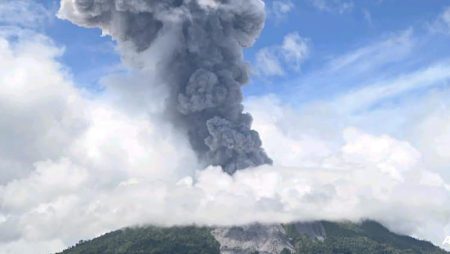A deadly heatwave has hit South and Southeast Asia, with Vietnam experiencing over 100 temperature records being broken in April. The extreme heat has caused heatstroke deaths, school closures, and a dire need for rain to cool the region. Scientists have attributed this heatwave to human-induced climate change, warning that such events will become more frequent, longer-lasting, and intense.
The National Centre for Hydro-Meteorological Forecasting in Vietnam reported three waves of high temperatures in April, with the mercury peaking at 44 degrees Celsius in two towns. This is only slightly below the country’s record high temperature of 44.2 degrees Celsius from last year. Northern and central Vietnam were hit hardest by the heatwave, with temperatures 2 to 4 degrees Celsius higher than the same period the previous year. Seven weather stations recorded temperatures above 43 degrees Celsius on Tuesday, highlighting the severity of the heatwave.
One of the most dramatic impacts of the extreme weather in Vietnam was seen in the southern province of Dong Nai, where hundreds of thousands of fish died in a reservoir. This event underscores the devastating effects of the heatwave on both human and animal populations in the region. The records broken in April serve as a stark reminder of the urgent need for action to address climate change and mitigate its impacts on vulnerable communities.
As temperatures continue to rise and new records are set, it is essential for governments and communities to take proactive measures to adapt to the changing climate. This includes implementing heatwave preparedness plans, improving infrastructure to withstand extreme heat, and investing in sustainable practices to reduce greenhouse gas emissions. Collaboration at the national and international levels is crucial to address the root causes of climate change and protect the most vulnerable populations from its harmful effects.
The heatwave in Vietnam and other parts of Asia serves as a wake-up call for individuals, governments, and businesses to prioritize climate action and reduce their carbon footprint. By transitioning to renewable energy sources, promoting energy efficiency, and adopting sustainable practices, we can mitigate the impacts of climate change and create a more resilient future for all. It is imperative that we act now to protect our planet and ensure a safe, healthy environment for future generations.
In conclusion, the extreme heatwave in Vietnam and other parts of Asia highlights the urgent need for climate action to address the growing threat of global warming. The broken temperature records in April serve as a stark reminder of the consequences of inaction, as heatwaves become more frequent and intense due to human-induced climate change. By working together to reduce emissions, adapt to changing conditions, and protect vulnerable communities, we can build a more sustainable future for ourselves and future generations.












